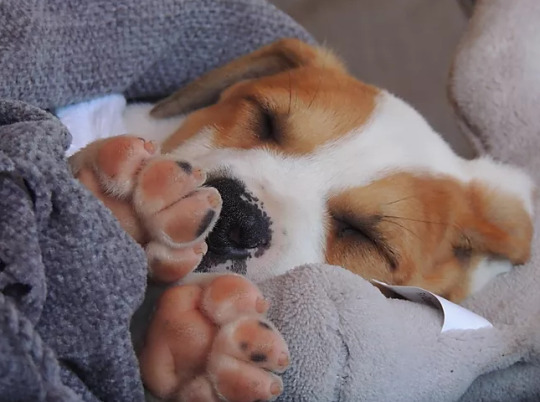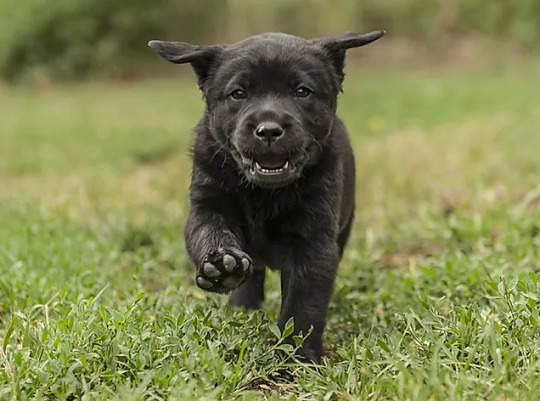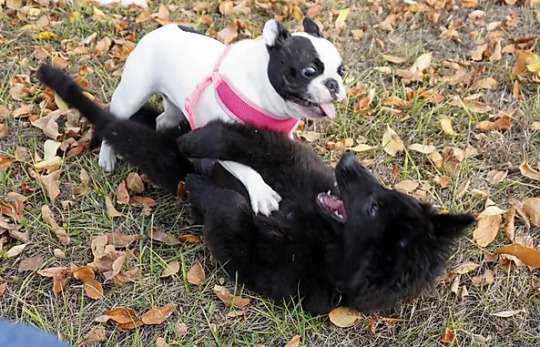Text
Weight Loss Tips for Women
Diet and exercise may be key components of weight loss for women, but many other factors play a role.
In fact, studies show that everything from sleep quality to stress levels can have a major impact on hunger, metabolism, body weight, and belly fat.
Fortunately, making a few small changes in your daily routine can bring big benefits when it comes to weight loss.
Cut Down on Refined Carbs

Refined carbs undergo extensive processing, reducing the amount of fiber and micronutrients in the final product.
These foods spike blood sugar levels, increase hunger, and are associated with increased body weight and belly fat.
Therefore, it’s best to limit refined carbs like white bread, pasta, and prepackaged foods. Opt for whole-grain products like oats, brown rice, quinoa, buckwheat, and barley instead.
Add Resistance Training to Your Routine
Resistance training builds muscle and increases endurance.
It’s especially beneficial for women over 50, as it increases the number of calories that your body burns at rest. It also helps preserve bone mineral density to protect against osteoporosis .
Lifting weights, using gym equipment, or performing body-weight exercises are a few simple ways to get started.
Drink More Water
Drinking more water is an easy and effective way to promote weight loss with minimal effort.
According to one small study, drinking 16.9 ounces (500 ml) of water temporarily increased the number of calories burned by 30% after 30–40 minutes.
Studies also show that drinking water before a meal can increase weight loss and reduce the number of calories consumed by around 13%.
Eat More Protein
Protein foods like meat, poultry, seafood, eggs, dairy, and legumes are an important part of a healthy diet, especially when it comes to weight loss.
In fact, studies note that following a high-protein diet can cut cravings, increase feelings of fullness, and boost metabolism.
One small 12-week study also found that increasing protein intake by just 15% decreased daily calorie intake by an average of 441 calories — resulting in 11 pounds (5 kg) of weight loss .
Set a Regular Sleep Schedule
Studies suggest that getting enough sleep may be just as crucial to losing weight as diet and exercise.
Multiple studies have associated sleep deprivation with increased body weight and higher levels of ghrelin, the hormone responsible for stimulating hunger .
Furthermore, one study in women showed that getting at least seven hours of sleep each night and improving overall sleep quality increased the likelihood of weight loss success by 33%.Do More CardioAerobic exercise, also known as cardio, increases your heart rate to burn extra calories.Studies show that adding more cardio to your routine can result in significant weight loss — especially when paired with a healthy diet .For best results, aim for at least 20–40 minutes of cardio per day, or around 150–300 minutes per week .
Dear Friends After Giving A Lot Of Efforts I Found a Product And Suggest Some People They are Get Benefited. , I am Not Saying This is the Best Product in The World bla bla bla .. But Its a Good Result .........
For More Details :- https://bit.ly/2BlOXxW
1 note
·
View note
Text
The Stage for Success: Your Puppy's
How do I start house training a new puppy?
Are there things I can do right from the first day?
Three important things to remember about house training are: Schedule, Supervise, and Reward the response you like. Feed meals at regular, predictable times every day. It's best to avoid free feeding, since a puppy who eats at random times during the day will need to "go" at random times during the day. A puppy on a regular feeding schedule will also get on a regular schedule of elimination.
Your puppy must go out immediately upon waking up, then out after every meal, when he wakes up from naps, and after play. Train yourself to watch for telltale signs of needing to potty: sniffing, circling, hunching; a sudden burst of activity can indicate a need to defecate. Don't count on a baby puppy knowing how to come and get you, or go to the door. Over time, you and your pup will figure out how to communicate those needs, but for now, be ready to take him out at any sign!
Housetraining is really a habit, as opposed to a conscious choice. That first week, I recommend getting your pup's bodily functions on a regular schedule, and concentrating on establishing the habit you want your pup to get into - relieving himself, for example, only on grass, or gravel, etc. Be generous in your praise for all good efforts outside, and try not to draw attention to accidents inside. If you see the pup start to go, by all means interrupt him, with a noise or by scooping him up, and get him outside to his potty area to finish. Don't go so far as to frighten him, and do not punish him!
Housetraining is a learning process, one that counts on your pup being able to trust you; he must want to seek you out when he needs to go. A pup who fears punishment for his mistakes is much more likely to simply avoid you when he feels the urge to go.
How soon can I start expecting a puppy to be reliably housetrained?

There is really no set age or time frame for a puppy to become reliably housetrained. Once the puppy becomes reliable when you are diligently supervising, you can start relaxing your supervision for a few minutes at a time. This may be a couple of weeks, or a few months, after you bring your puppy home.
Avoid relaxing your restrictions too soon - even after your pup develops physical control, he will still have the attention span of a puppy, and may get caught in the back of the house, with no way to communicate to you that needs to go out. If he gets a chance to discover that the back bedroom is a handy alternative bathroom, this could be a major setback to all your hard work and diligence. I prefer to keep up strict supervision for about a month after the last accident, before I begin to ease up - very gradually! Keep supervising and you'll avoid your pup developing bad habits.
Any other you have any other tips or tricks that can help make this a success?
Be consistent, develop a routine, and be diligent in your supervision. Have some confinement options available for when you can't supervise, or just need a break :-). Don't take good behavior for granted -- actively let your puppy know that you appreciate every desirable behavior you get from him. Realize that both you and your pup will make mistakes! He'll be patient with you, if you are with him. Determine to have fun, take the occasional bumps in stride, and most of all, enjoy your puppy!
Where should my puppy sleep? Is there a best way to handle loneliness and crying?

I feel the absolute best place for a dog to sleep is right next to your bed. When your pup first comes home, you can place his crate there, next to you. (You could also use a small exercise pen.) I like to have the crate close up by the head of the bed, so I can hear him if he stirs, and I can easily reach down and put my fingers through the crate door, so that the puppy can sniff or lick my fingers.
Especially the first few nights, it can really help the puppy if you make that contact, and just let him know someone is there! You can also keep a toy or blanket from the breeder's home in the crate, which smells like mom and littermates, or you can use the old standby hot water bottle wrapped in a fluffy towel, for those first few nights. But nothing takes the place of good old-fashioned human contact.
Having the puppy sleep in your bedroom has two additional benefits. The puppy learns from watching you that nighttime is for sleeping, not activity, and if he needs to go out to potty, you'll know about it right away.
Pups that are kept in a separate room at night, or are loose to roam around the house, may find less-than-ideal ways to entertain themselves and relieve loneliness and boredom. Unconfined at night, pups may learn to chew or dig at walls and furniture, even on electric cords. With no one awake to supervise, this is at best a quick way to develop some very bad habits, and at worst, a dangerous situation to put your new puppy in! You'll save time, trouble, and money by investing in, and using, a crate or exercise pen for your new puppy.
Should I give my puppy full run of the house right away? What's the best way to supervise and introduce him to the entire house?

Puppies are naturally curious, and like babies, want to put things in their mouths to find out about them. Their attention spans are short, and even the best puppy may find its curiosity getting the best of him!
For most puppies and even adolescent dogs, having the run of the house, unsupervised, is simply too much temptation, and too much responsibility. Bear in mind that it can be very difficult and time-consuming to teach a dog to stop chewing inappropriate items, like your favorite shoes and that expensive imported rug, after he has discovered what fun toys they can be, and developed a habit of chewing them.
Puppies of different breeds, and even pups within the same litter, mature at different rates, and will be able to be responsible with free run of the house at different ages. I like to err on the side of caution for the pup's first year! Supervise closely, and confine when you can't.
Close doors or use baby-gates to block off off-limits rooms and areas of the house. Pick up, or apply taste-deterrent to, any tempting items, and provide your pup a selection of chew toys of different shapes, sizes, and textures. Let him know what a wonderful pup he is when you "catch him in the act" of chewing his own toys! And distract him from chewing those things you weren't able to prevent him from investigating.
Puppies have a physical need to chew while they are teething, and then after teething, when the teeth are "setting". The main challenge is getting through your pups first 7-8 months without allowing him to develop the habit of chewing forbidden items. Once he is past the chewing stage, most pups can have their freedom in the house increased gradually but steadily.
Most Of The People Using The Training Program With 50+ Gravity But I am Personally Use This Program With 189 Gravity So You Can Decied.........
Learn More :- https://bit.ly/2OL0IRr
#dog#dogtraining#how to train dog#cute dog#dog course#brain training for dogs review#trained your dog#animals#dogstagram#puppy#canine#dogspic#pets#daily pets#petstagram#petsarefamily#adorable pets#puppies#lol#rescue
2 notes
·
View notes
